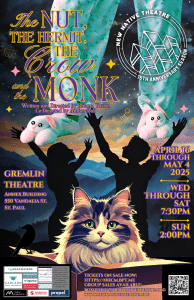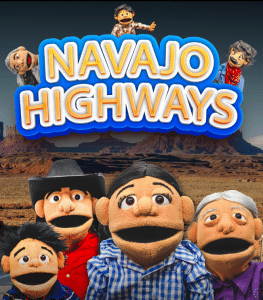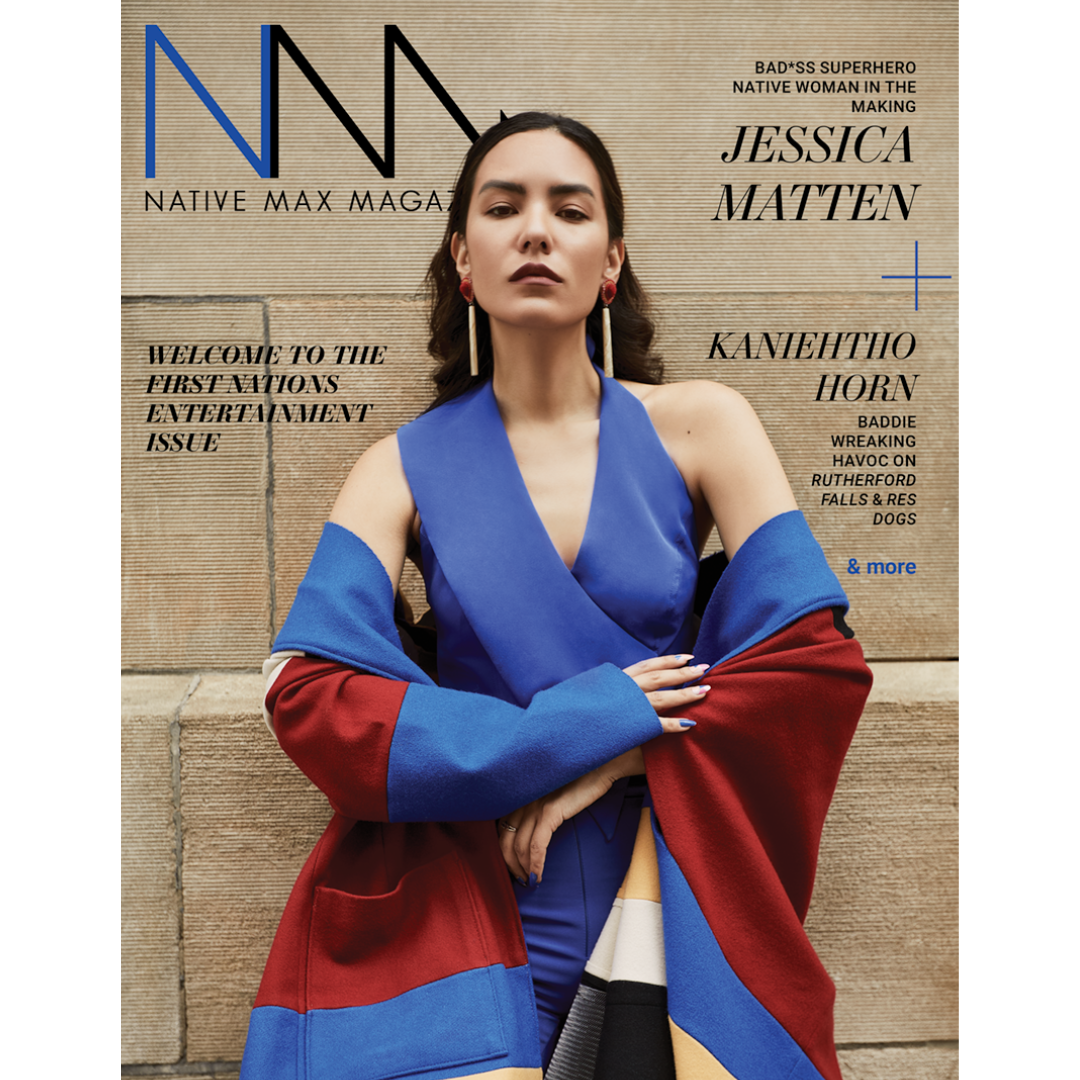Select a subscription plans
You need a subscription to access this content.
Warfare is not your typical war film. Gritty, unflinching, and raw in its depiction, the film drops viewers into the heart of chaos without context or backstory, forcing them to experience the brutal reality of combat through the eyes of its characters. Co-directed by military veteran Ray Mendoza and legendary filmmaker Alex Garland, Warfare strips away the glamor and glorification often associated with war cinema, instead delivering a sobering portrayal of survival, brotherhood, and the psychological weight carried by soldiers. With a standout performance from D’Pharaoh Woon-A-Tai, the film also subtly addresses long-overdue conversations about Indigenous representation in military narratives.
Following his intense and emotionally charged role in Warfare, D’Pharaoh Woon-A-Tai sat down with Native Max to talk about his preparation for the film, the deeply human themes that drew him to the project, and what it meant to portray an Indigenous soldier in a story that pulls no punches. With a commitment to authenticity and a desire to open doors for Indigenous representation in Hollywood, D’Pharaoh shares a behind-the-scenes look at a film that challenges the traditional war movie narrative.
Native Max: What drew you to Warfare, and what made this role stand out from others you played?
D’Pharaoh: I never read a script like warfare before. The authenticity that I assume is different from other scripts that I would read regarding horror films is completely different. I hope you agree with it. My opinion is that this is a very good example of an anti-war film, but it is also very different from other anti-war films that are out there. You know, amazing films that depict anti-war and the consequences of war. Not to spoil it for whoever hasn’t seen the film yet, but there are scenes in the film where it’s very prevalent that these guys are taking care of themselves, and they’re looking out for themselves. In one scene, they disobey orders to save each other, and that idea of brotherhood, the idea of this film going to be an anti-war film is what stuck me to the script.

Also, what I loved about the script so much was that when I read it, I realized that this project, though the script doesn’t glorify anything that happened there that day, they [filmmakers] presented it on a very neutral stance. They just drop you off in the middle of the situation. They don’t give you context. They don’t tell you anybody’s backstory. You just have this 12-hour day with these military soldiers trying to survive this hell.
Native Max: So I read the production notes, which detail the preparation for the movie. How did you prepare physically and mentally for the intense demands of your role?
D’Pharaoh: We were grateful enough to have a three-week boot camp prior to filming. Raymond Doza, who I play, was our instructor for this boot camp. He’s the best person to be because after serving and doing his tours, when he came back, he became a BUD/S [physical training] instructor. If you’re familiar with the Navy SEALs, BUD/S is the program that you have to beat to even apply or be considered to be a Navy SEAL. So we were in the best hands when it came to training. Also, I worked alongside a few others, with a great man named Brian–we call him Shipwreck. As you can see in the film, my guy is JTAC communications [Joint Terminal Attack Controllers are the people who coordinate the attacks of Close Air Support (CAS) flights in a specific target area], so I work with the radio a lot. For three weeks, I was under his wing, and he taught me everything. I needed to know about communication, whether that be how they speak, the dialogue, or the style of speaking, because how they speak over there, as much as it’s English, is a very foreign language. So we were in great hands, and with all the prep and the mental work, I didn’t need to do anything alone.
Native Max: How was it working with Ray Mendoza and Alex Garland? They have distinct storytelling styles, so what was it like working under that new direction?
D’Pharaoh: It was amazing. First and foremost, for Raymond Mendoza, this was his debut as a director. Alex has such a long and legendary career in the industry that working together was probably the best dynamic I’ve seen in a duo director relationship. Alex is one of the greatest. He has such an editor’s mindset. He knows what he needs and doesn’t need, and he is very persistent about it. Ray, living his experiences, knows what he experienced and knows how to train people and how to get emotions out of people. And so it was one of the best experiences I’ve had working with them.

Native Max: As an Indigenous actor in this major military film, did you see any unique challenges or responsibilities in representing your heritage in this role? Or how did it add to your perspective?
D’Pharaoh: It’s not brought up enough in pop culture or society that we have fought in every single war since the Civil War. Even before that, in the Indian Wars. We helped build this country, and sadly, that’s not depicted at all in Hollywood cinema. I can only name one or two films I can think of. Where is it, the native military, where are the code talkers? Do you know what I mean? Ira Hayes, for example. So many indigenous military heroes and legends are in our communities that are not talked about at all. It’s very disrespectful.
But besides all that, Mr. Ray Mendoza, he’s Yaqui as well. I felt a lot of pressure because this was going to be a big film that was going to be seen by mass audiences. As you watch the film, they don’t state that he’s native and not running around like the native guy on the crew, but he is, and that’s important. Our stories are being told, too. Hopefully, people are interested in talking more about the indigenous military experience because, again, almost everybody I know knows a Native veteran. There are a lot of great stories that need to be told but are not. I hope that this opens those doors.
Native Max: Lastly, what do you hope audiences walk away with after watching this film?
D’Pharaoh: This film right here dives perfectly into the consequences of war. I hope this film is different compared to other war films out there because, sadly, a lot of them may glorify war. They may even make it seem cool to go to war. This film is a perfect example of how terrible war is, and I hope audiences leave the theater discussing what happened in Iraq.
As Warfare sparks conversations about the true cost of combat, D’Pharaoh Woon-A-Tai’s performance stands as both a testament to his range as an actor and a powerful reminder of the stories still waiting to be told—especially those of Indigenous veterans who have long fought for a country that rarely tells their stories on screen. Through his role, D’Pharaoh hopes to change that narrative and continue pushing for more visibility and authenticity in the industry.
Watch Warfare In theaters and IMAX nationwide April 11, 2025.










